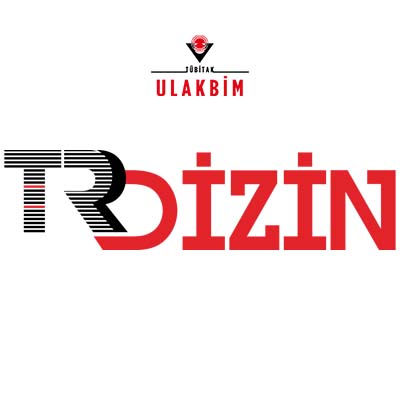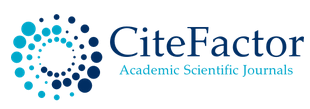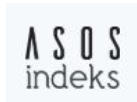Zihinsel Yetersizliğe Sahip Öğrencilere Yön Bulma Becerisinin Kazandırılması (Upskilling Students Who Have Mental Inadequacy with Sence of Direction)
Keywords:
Social Studies, mental deficiency, sense of directionAbstract
The purpose of this research is to help mentally deficient students acquire the sense of direction. The study group of the research consists of three 6th grade students with slight mental deficiency. Research data is collected through the “Skill Level Assessment Test” which was prepared based on the views of two specialists in Social Studies and Special Education field. Wilcoxon Signed Rank Test is used in data analysis. According to research results, in order for the mentally deficient students to acquire the sense of direction, first they need to fully comprehend prerequisite concepts of this skill, such as direction, map and compass. Another research result is that, analysis and laddering of the skill highly facilitate the mentally deficient students in acquiring the sense of direction. The research further shows that; while demonstration method is efficient in helping the students acquire the sense of direction through the use of map and compass, it fails to be fully satisfying in teaching other direction finding methods. So it is concluded that; methods making use of natural elements like the sun and stars, such as trip and observation, could help the students perceive the place better and thus facilitate their acquisition of the sense of direction.
References
Aksoy, B. ve Yaylacı, Z. (2016). Sosyal bilgiler öğretmenlerinin kaynaştırma eğitimindeki yeterlilikleri, uluslararası Türk eğitim bilimleri dergisi, 6 (4), 19-40.
Aral, N. ve Gürsoy, F. (2007). Özel eğitim gerektiren çocuklar ve özel eğitime giriş. İstanbul: morpa.
Büyüköztürk, Ş. (2013). Veri analizi el kitabı (genişletilmiş 18. baskı), Ankara: pegem. Demirel, Ö. (2011). Öğretim ilke yöntemleri- öğrenme sanatı (17.Baskı), Ankara: pegem.
Demirkaya, H., Çetin, T. ve Tokcan, H. (2004). İlköğretim birinci kademe öğrencilerine yön kavramı öğretiminde kullanılabilecek metotlar. Gazi eğitim fakültesi dergisi, 24 (3), 39-70.
Dönmez, N.B.,Abidoğlu, Ü., Dinçer, Ç., Erdemir, N. ve Gümüşlü, Ş. (2000). Okul öncesi dönemde dil gelişimi etkinlikleri. İstanbul: Ya-Pa.
Karatekin, K. (2006). İlköğretim 4.sınıf sosyal bilgiler dersinde yön ve yön bulma yöntemleri konusunun çoklu zekâ kuramına göre öğretilmesinin öğrenci başarısına etkisi. Yüksek lisans tezi. Gazi üniversitesi eğitim bilimleri enstitüsü, Ankara.
Kırcaali İftar, G. ve Tekin, E. (1997), Tek denekli araştırma yöntemleri, Ankara: Türk psikologlar derneği yayınları
MEB, Talim Terbiye Kurulu Başkanlığı.(2005). İlköğretim sosyal bilgiler dersi 6.ve 7.sınıflar öğretim programı ve kılavuzu ( taslak basım ). Ankara: devlet kitapları müdürlüğü
MEB (2008), Özel eğitim ve rehabilitasyon merkezi zihinsel engelli bireyler destek eğitim programı
Öcal, A. (2007). İlköğretim sosyal bilgiler dersinde 6.sınıf öğrencilerinin mekânsal biliş becerilerinin incelenmesi. Yayınlanmamış doktora tezi, Gazi üniversitesi eğitim bilimleri enstitüsü, Ankara.
Özgür, İ. (2015). İlk ve ortaöğretimde kaynaştırma uygulamaları, Adana: karahan.
Özgür, İ. (2013). Engelli çocuklar ve eğitimi özel eğitim. (güncellenmiş 4.baskı). Adana: karahan.
Safi, H. (2010). Sosyal bilgiler öğretim programında yer alan mekânı algılama becerisinin geliştirilmesi hakkında öğretmen görüşleri. Yayınlanmamış yüksek lisans tezi, Marmara üniversitesi eğitim bilimleri enstitüsü, İstanbul.
Sucuoğlu, B. (Ed.) (2010). Zihin engelliler ve eğitimleri. (3.Baskı). Ankara: kök.
Vayiç, Ş. (2008). Zihinsel yetersizlikten etkilenmiş öğrencilere hayat bilgisi öğretiminde doğrudan öğretim yöntemi ve şematik düzenleyiciyle öğretimin karşılaştırılması. Yayınlanmamış yüksek lisans tezi, Gazi üniversitesi eğitim bilimleri enstitüsü, Ankara.
Vural, B. (2004). Öğretim faaliyetlerinde yöntem- teknik ve etkinlikler, İstanbul: hayat.
Downloads
Published
How to Cite
Issue
Section
License
Copyright (c) 2023 Journal of Anatolian Cultural Research (JANCR)

This work is licensed under a Creative Commons Attribution-NonCommercial 4.0 International License.










